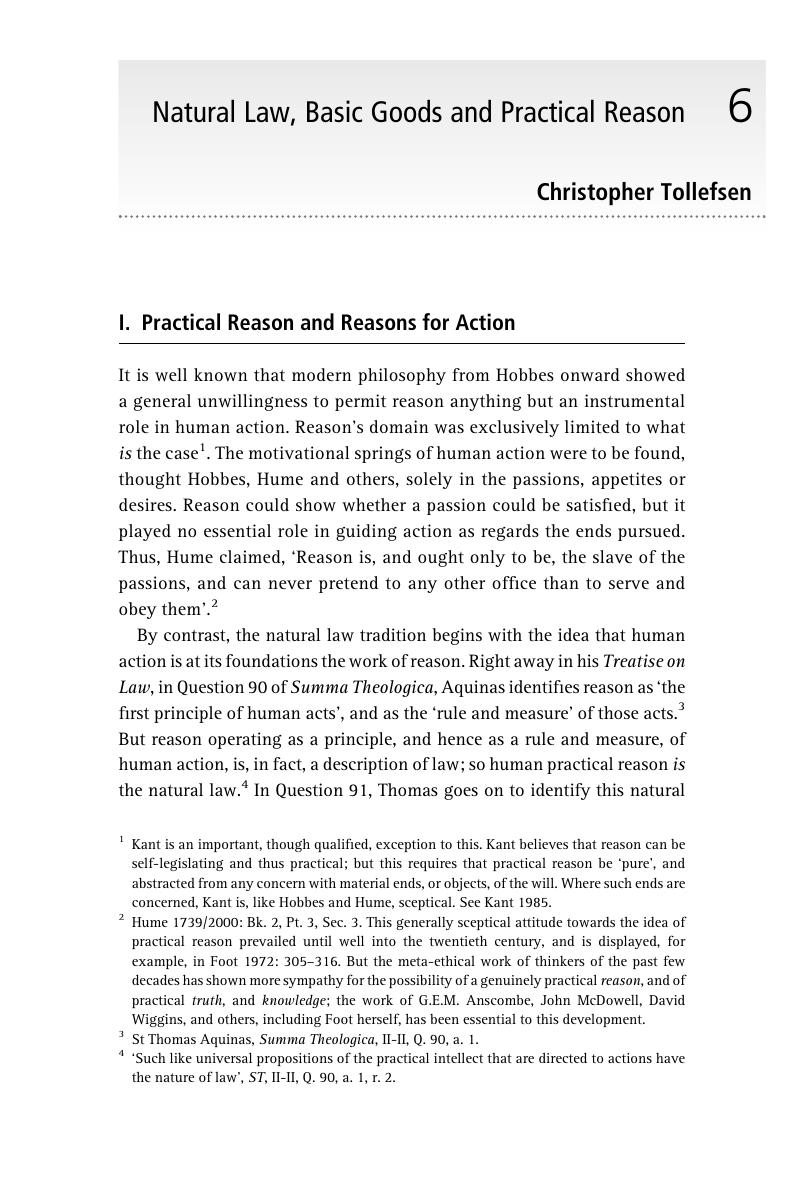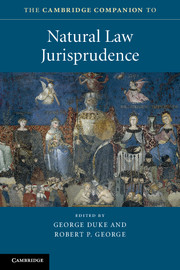Book contents
- The Cambridge Companion to Natural Law Jurisprudence
- Cambridge Companions to Law
- The Cambridge Companion to Natural Law Jurisprudence
- Copyright page
- Contents
- Notes on Contributors
- 1 Introduction
- Part I Foundations
- Part II Practical Reason, Normativity and Ethics
- 6 Natural Law, Basic Goods and Practical Reason
- 7 Practical Reason in the Context of Law
- 8 Hume, Virtue and Natural Law
- 9 Natural Law Reasoning in Applied Ethics
- Part III Law
- Index
- References
6 - Natural Law, Basic Goods and Practical Reason
from Part II - Practical Reason, Normativity and Ethics
Published online by Cambridge University Press: 04 July 2017
- The Cambridge Companion to Natural Law Jurisprudence
- Cambridge Companions to Law
- The Cambridge Companion to Natural Law Jurisprudence
- Copyright page
- Contents
- Notes on Contributors
- 1 Introduction
- Part I Foundations
- Part II Practical Reason, Normativity and Ethics
- 6 Natural Law, Basic Goods and Practical Reason
- 7 Practical Reason in the Context of Law
- 8 Hume, Virtue and Natural Law
- 9 Natural Law Reasoning in Applied Ethics
- Part III Law
- Index
- References
Summary

- Type
- Chapter
- Information
- The Cambridge Companion to Natural Law Jurisprudence , pp. 133 - 158Publisher: Cambridge University PressPrint publication year: 2017
References
Works Cited
- 2
- Cited by

